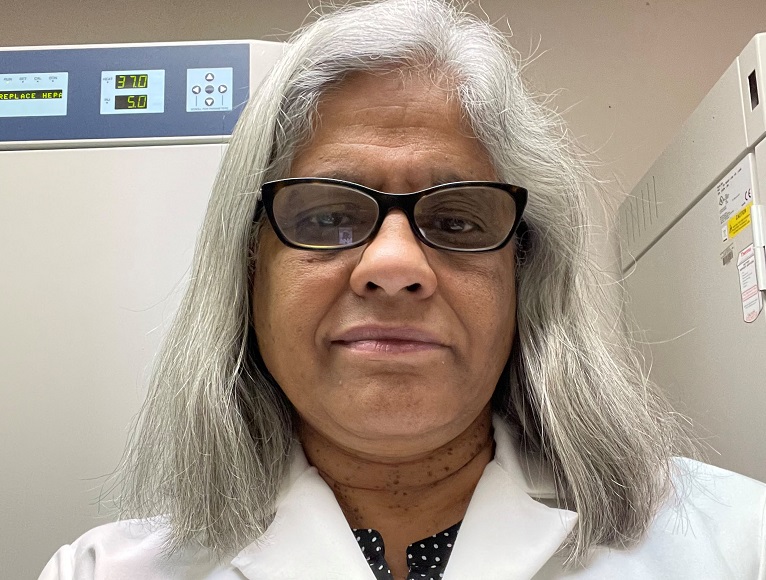The Michigan-based Thomas Foundation has renewed its support of diabetic retinopathy research at the Wayne State University School of Medicine for the 22nd continuous year, this time to investigate the role of long noncoding RNA MALAT1 in the condition.

Long noncoding RNA MALAT1, or Metastasis Associated Lung Adenocarcinoma Transcript 1, is a highly expressed long noncoding RNA.
Professor of Ophthalmology, Visual and Anatomical Sciences Renu Kowluru, Ph.D., is the principal investigator on the research project, the only one supported by the foundation for more than 20 years, she said.
“I am honored to have their confidence in my research to continuously support it for more than two decades,” she added.
Diabetic patients have increased circulating levels of long noncoding RNA MALAT1 and damaged mitochondrial DNA, and this long noncoding RNA is shown to interact with multiple loci on the mitochondrial DNA in hepatoma cells.
“We think that this long noncoding RNA accumulates in the mitochondria, exacerbating mitochondrial DNA damage and dysfunction, and ultimately, leading to the development of diabetic retinopathy,” Dr. Kowluru said.
Diabetic retinopathy, the most common cause of acquired blindness in young adults, results from damage to the small blood vessels in the retina. All people with diabetes are at risk of developing retinopathy, and the risk increases the longer a person has diabetes.
Dr. Kowluru considers the Thomas Foundation’s grant especially significant, as it was first awarded at a time in her career when her other grant support was running out. She also leads three R01-funded projects from the National Institutes of Health. She is a member of NIH’s National Eye Advisory Council and her department’s director of Translational Research.